Announcements
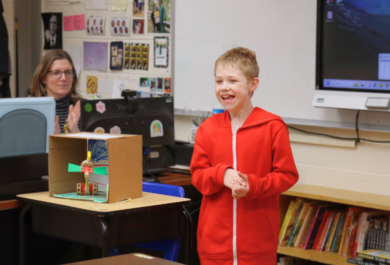
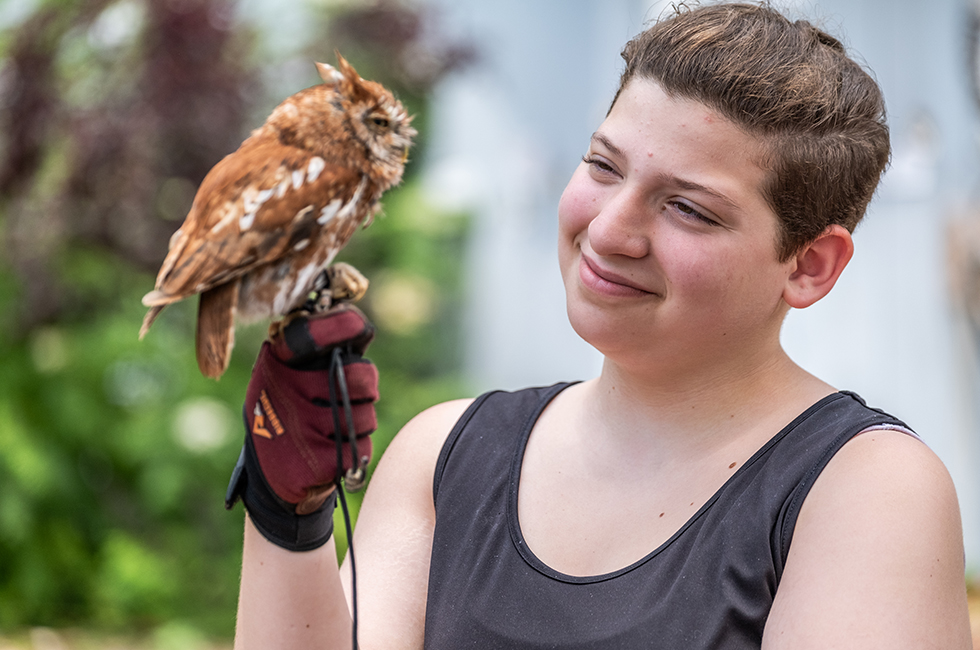
According to Tome, “Wildlife doesn’t get enough love. Everyone likes the cute, cuddly animals because most people don’t understand birds or snakes,” says the 15-year-old Green Chimneys student. “I’m more curious about things I don’t fully understand.”
Hearing a student express a sentiment like this is a joy to Wildlife Teacher John Boyle, who focuses his lessons on awareness, empathy and respect for wildlife and the natural world they inhabit. He takes a pragmatic approach by guiding students though their existing knowledge or preconceptions about animals that they may not have had experience with before, and contrasts that with facts about each species and their instinctive need not to just live, but to survive.
“Snakes are an excellent species to study; it’s an animal that’s gained a reputation for being scary or dangerous but in fact, they are highly sensitive creatures that carefully explore their surroundings to ensure they are safe,” says John. “I teach that not all animals are meant to be handled, some are just to observe but when we can respect an animal’s need to feel safe, regulate our behavior and our movement, the animal can respect – and trust – us, as well.”
For students who decide to engage, handling a snake can provide a calming sensory experience, and a great awareness of self. The stillness, relaxed muscles, and even-paced breath required for these interactions help students to practice self-awareness, emotional regulation, and trust. This ability to slow down and stay mindful are at the core of the coping skills that Green Chimneys students are building for themselves.
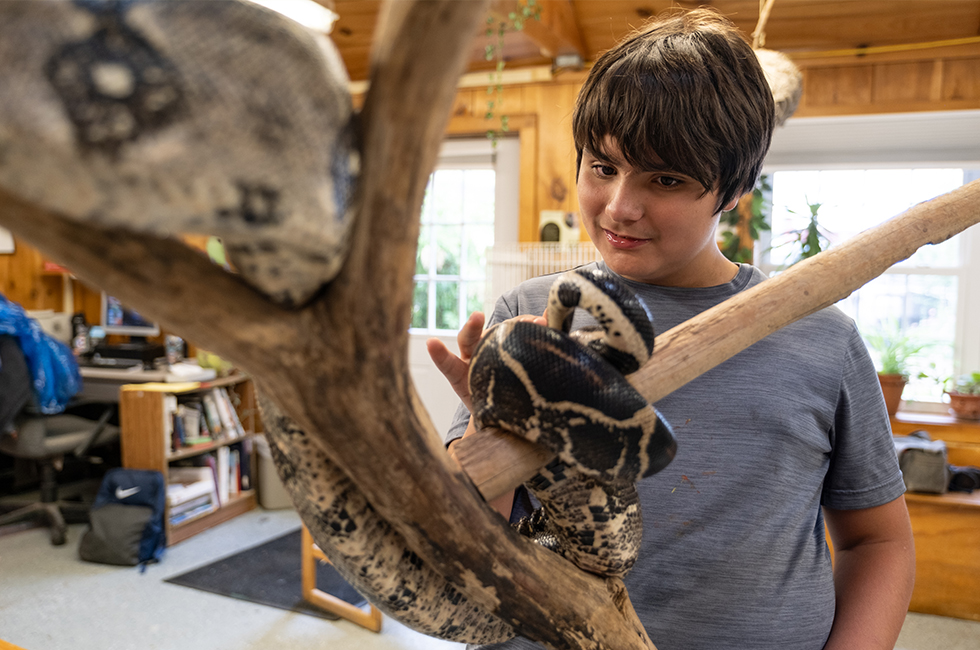
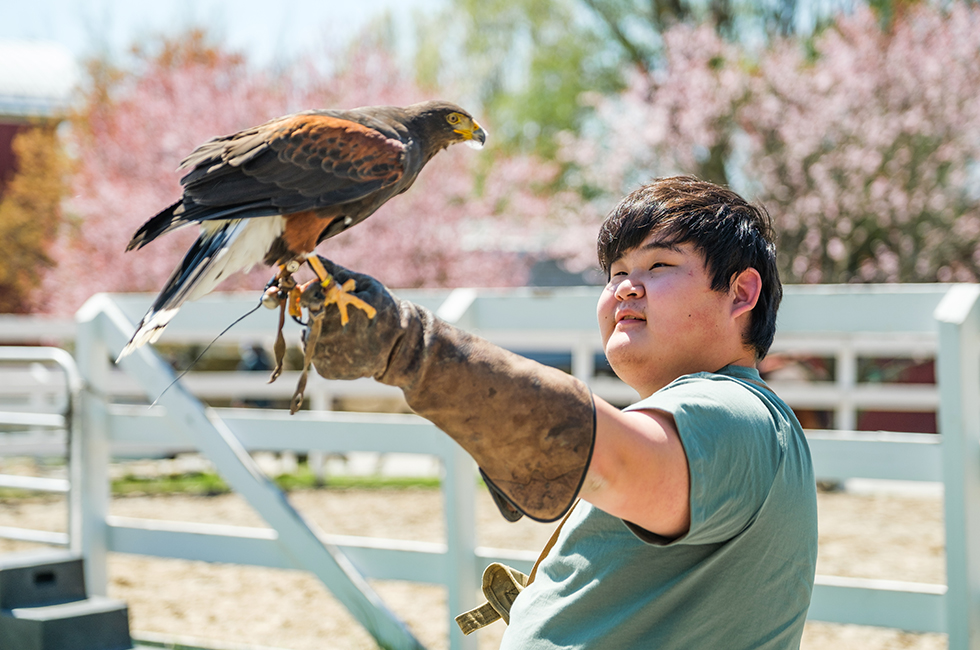
As part of Green Chimneys School’s nature-based curriculum, Wildlife Education is scheduled into the students’ regular academic program. Classes feature the study of birds of prey, reptiles, and other wildlife; awareness of environmental conservation; and opportunities to interact directly with the variety of animals in the wildlife classroom. Interested students can increase their participation with opportunities to assist in animal care, such as preparing diets, cleaning bowls and some aspects of medical treatments.
For the past two years, Tome has held various Learn & Earn jobs in wildlife, learning to care for the birds of prey and other animals at the Wildlife Center.
Tome recently earned a role as a wildlife apprentice, which will expand their responsibilities in the day-to-day tasks and allow for more hands-on experience with the animals, and direct handling of some. While Tome has developed a high level of comfort with wildlife – including the ability to feed the enormous Andean Condor – a deep respect for the wellbeing of the animal is what’s always top of mind.
“Animals are very good at understanding their surroundings and with humans, they are a tiny animal at the mercy of a larger animal so you need to be aware of their body language and how they are feeling,” says Tome. “I know how I feel when I’m nervous so it’s important to have a calm demeanor, know the animal’s limits, and your own.”
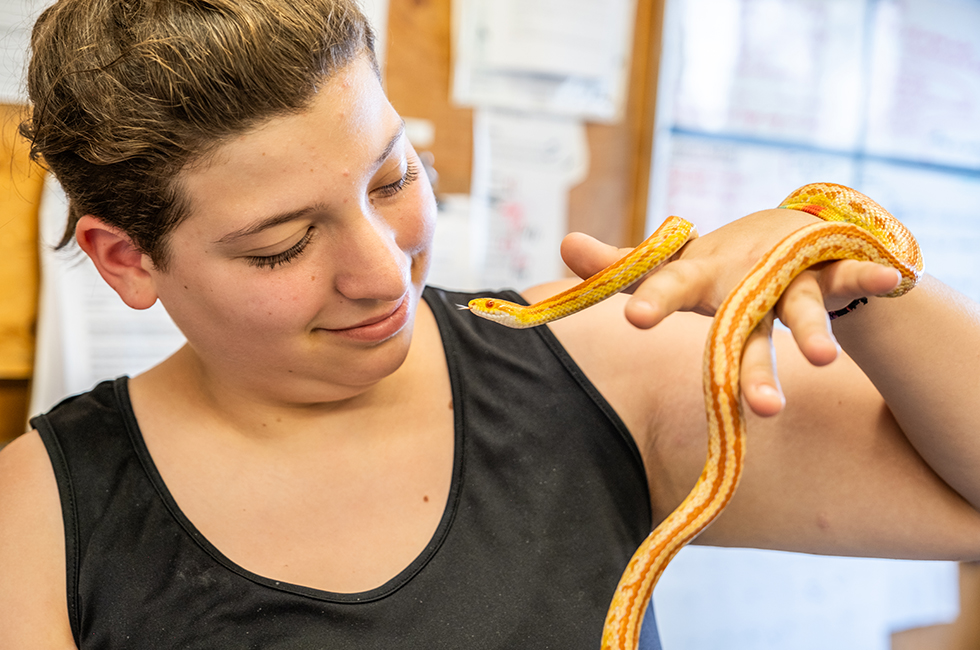
Learn more about Green Chimneys nature-based therapeutic approach and what students learn at the Farm & Wildlife Center.
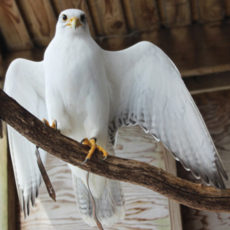
Crowned the best for falconry in medieval times, gyrfalcons were once reserved for kings. As the largest falcon in the world, with exquisite plumage ranging from bright white to deep charcoal, gyrs are revered for their powerful skill of flight. Their long wings make hunting waterfowl from 3,000-feet-high a feasible and fantastical feat. This falcon was flown in the sport of falconry for several years.